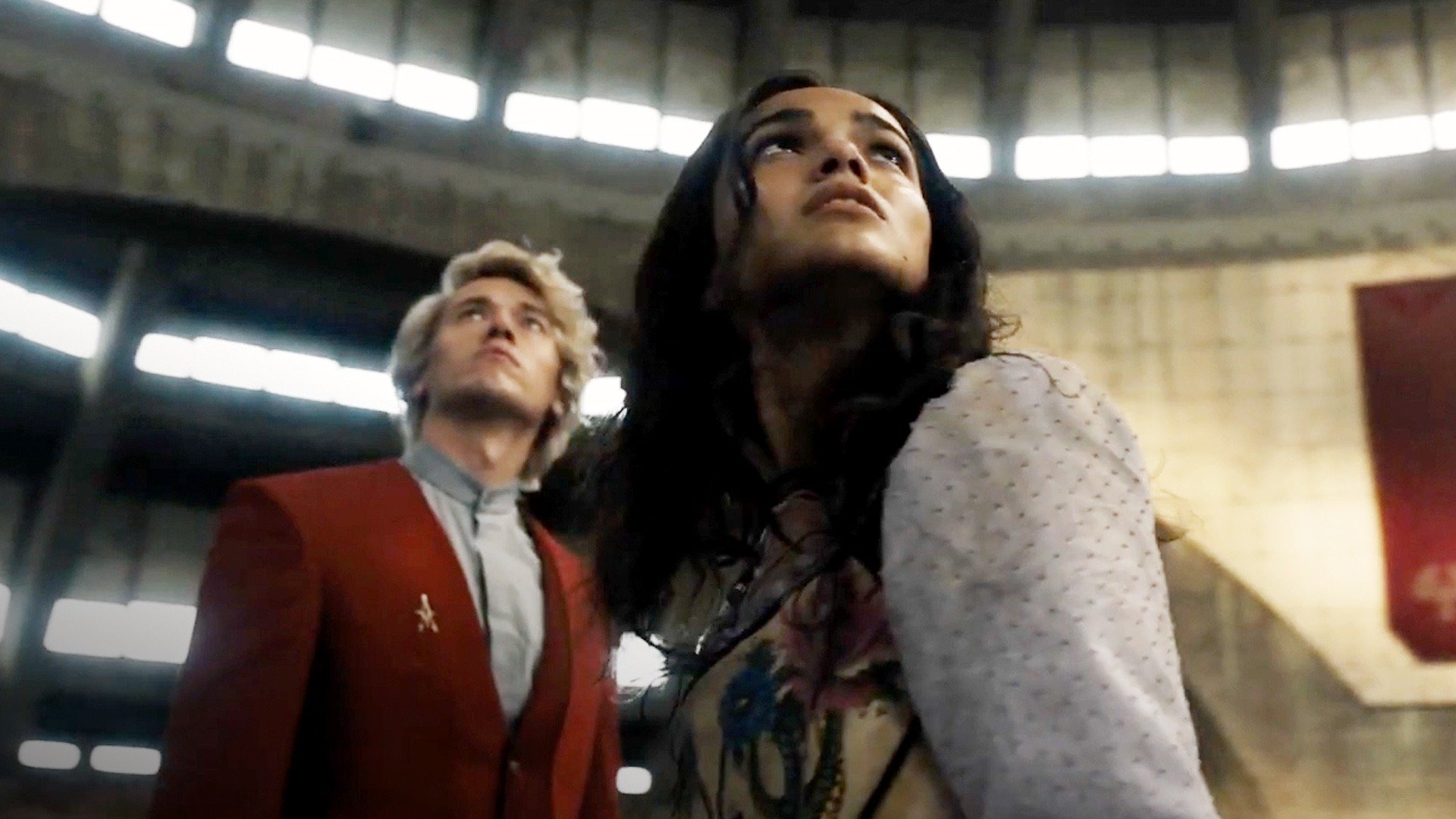The Hunger Games: The Ballad of Songbirds & Snakes

It may have been 8 years since the original quartet of The Hunger Games films concluded, but this prequel offers a gripping insight into the fictional history of Panem, and the series has lost none of its edge, moral complexity, or focus on character.
Premise: Ten years after the end of the brutal civil war between the Capitol and the Districts (and 64 years before the events of the original film), student Coriolanus Snow (Tom Blyth) learns that he must mentor the District 12 female tribute, Lucy Gray Baird (Rachel Zegler), in the 10th Hunger Games if he is to have any chance of restoring his family's former prosperity and social status. But the public’s interest in the annual Hunger Games is waning, and some in the Capitol are beginning to ask whether the games should be cancelled entirely.
Review:
I was a huge fan of the original series of The Hunger Games films that came out between 2012 and 2015, and (having not previously read the books) was taken by surprise by just how bleak, morally complex and powerful they were. Despite this, I was still sceptical when I heard that they were planning to make a prequel movie – although I did feel a little better when I learned that the prequel movie would be an adaptation of a novel written by the series’ author Suzanne Collins, rather than a shameless studio cash-in.
I needn’t have worried, because with Suzanne Collins returning to expand the mythos of her fictional world, and Francis Lawrence (director of The Hunger Games: Catching Fire and The Hunger Games: Mockingjay - Part 1 and Part 2) returning to direct this prequel, The Hunger Games: The Ballad of Songbirds & Snakes was not only always in safe hands, but it was also never going to be a simply retread of the previous films.
“…told from the perspective of the first mentors…”
Whereas the original quartet of films was told from the perspective of one of the “tributes” in the Hunger Games (Jennifer Lawrence’s Katniss Everdeen), The Ballad of Songbirds & Snakes is told from the perspective of the first batch of mentors, which include a young Coriolanus Snow (Tom Blyth) who, as we know, will eventually grow up to be the character played by Donald Sutherland in the original films. We learn that the mentors are a new addition for the 10th Hunger Games, intended to increase audiences’ interest in the annual event.
It's with this plot thread that the film delves into some really interesting ideas, such as the need to dress the ceremonial slaughter of children up as ‘entertainment’ in order to keep the public’s interest, at a time when even Capitol citizens are beginning to question whether it’s right to make children who weren’t even alive during the civil war pay for their Districts’ insurrection. The voices against the Hunger Games are led by Sejanus Plinth (Josh Andrés Rivera), a former resident of District 2 who is plagued by his conscience after his wealthy family relocated to the Capitol. Sejanus Plinth and Coriolanus Snow are both outsiders at school – Sejanus because he’s ‘new money’, and Coriolanus because his once powerful family is now on the brink of poverty themselves – and so they become friends and allies against their privileged and out-of-touch peers.
“…these games are stripped back, brutal & dehumanising…”
The games themselves in this film are a far cry from the grandeur, pomp and ceremony of those seen in the original films – these games are stripped back, brutal and dehumanising, with none of the artifice that characterised the later games. It’s fascinating to see how the games begin to evolve, especially as we also get an insight into the man who invented the Hunger Games – Casca Highbottom, Dean of the Academy – played by the always excellent Peter Dinklage.
Although Casca Highbottom invented the Hunger Games, it’s Dr Volumnia Gaul (Viola Davis) who now runs them, as the Head Gamemaker. Whereas Peter Dinklage’s performance is withdrawn, sullen and emotionally shut down, Viola Davis’ is gleefully excessive, portraying Dr Gaul as a ‘mad scientist’ on the verge of pantomime villain, but never quite crossing that line.
“…Lucy Gray is far from a Katniss clone…”
As with the original films, there’s a fantastic supporting cast behind the main stars, although of all of them, it’s Jason Schwartzman who comes closest to stealing the film as Lucretius "Lucky" Flickerman, the host of the Hunger Games broadcast … and part-time weatherman and amateur magician. Jason Schwartzman appears to be having a ball – not only does he do an amazing job of channelling Stanley Tucci’s performance as Caesar Flickerman from the original films (presumably Lucretius’ descendant), but he’s also responsible for the vast majority of the film’s laugh-out-loud moments, most of which (to me) appeared to have been lines that he improvised.
Although most of the focus this time around is on those characters working behind the scenes on the 10th Hunger Games, the tributes who have been unwillingly selected to fight to the death are personified in this film by Lucy Gray Baird, played by Rachel Zegler. Lucy Gray is far from a Katniss clone – she’s a darker character, with a vein of bitterness and righteous anger running through her, and although she’s determined not to abandon her fellow District 12 tribute, she’s also not quite as self-sacrificing as Katniss was. None of this is meant to make her sound like an unsympathetic character – but she’s a more nuanced, arguably more human character – whereas Katniss was so altruistic, it was easy to see how she would become a beacon of hope for the resistance.
“…a prequel that actually adds something worthwhile to the mythology…”
All in all, The Ballad of Songbirds & Snakes delivers enough of what we’ve come to expect from a Hunger Games movie that fans won’t be disappointed, but at the same time, it gives us an insight into a previously unseen period of Panem history, told through the eyes of interesting and morally complex characters, who don’t fee like carbon copies of previous characters. The end result is a prequel that actually adds something worthwhile to the mythology of the original films.







